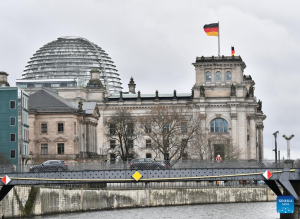Consumer price index (CPI) in Germany dropped further to 2.5 percent in February — the lowest level since June 2021, down from 2.9 percent in January, the Federal Statistical Office (Destatis) said on Tuesday.
“The price situation for energy products continues to ease,” Destatis President Ruth Brand said in a statement. The rise in food prices “slowed markedly” and dropped below the overall inflation rate for the first time in more than two years.
Although government relief measures ceased in January, energy prices fell by 2.4 percent, according to Destatis. Prices for electricity, natural gas, and solid fuels such as wood fell particularly sharply.
The decrease in energy prices “continued to have a downward effect” on the inflation rate, Destatis noted. Last year, energy had still been one of the main drivers of inflation in Germany as a consequence of the Russia-Ukraine conflict.
Although the cost of electricity, gas, heating oil, and fuel had fallen by a third since its peak in October 2022, “private households are still heavily burdened by high energy costs,” said Thorsten Storck, energy expert at comparison company Verivox.
According to an analysis published by Verivox in late February, energy prices are still 41 percent higher than three years earlier, resulting in additional annual costs of 1,500 euros (1,635 U.S. dollars) for consumers.
The German government expects the rise in consumer prices to slow to an average of 2.8 percent in 2024, down from annual inflation of 5.9 percent last year, according to the latest economic outlook published last month.
After months of easing price pressure, Germany’s inflation rate picked up again to 3.7 percent in December 2023, according to…
Germany has seen waves of strikes in several sectors since the beginning of this year, disrupting rail and air traffic…
















